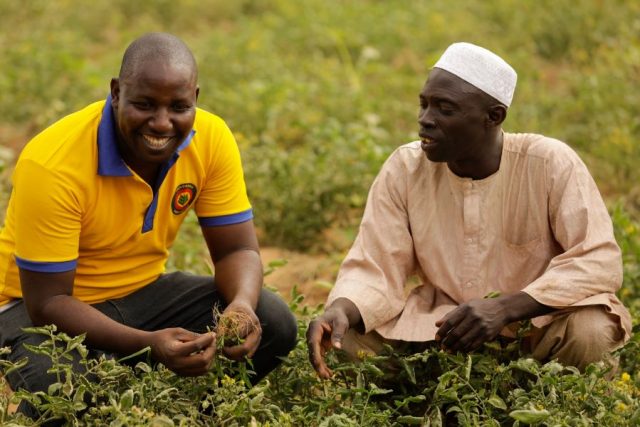
By Osa Austin Arunah
TUE. 27 DEC, 2022-theGBJournal| 2022 has been a trying year for businesses operating in Nigeria, a year in which most, if not all have had to cleverly adjust and re-adjust to the many economic uncertainties throughout the year.
Inflation completely went rogue forcing the Monetary Policy Committee (MPC) of the Central Bank of Nigeria CBN to engage in four MPR hikes in the year.
The (MPR) opened the year at 11.5% where it had remained since June 2020, it was raised by 150 basis points to 13% in May this year, in a statement by the CBN that the hike was necessitated as a response to global inflationary pressures, spreading and affecting economies around the world.
The MPC again hiked the MPR in July by 100bsp from 13% to 14% to curb the inflation rate that had gone rouge from 15.55 in January to 18.6% in June. This was not the end to these hikes and growing inflations, as the CBN’s MPC again hiked the MPR to 15.5% from 14% a 150bsp on the 27th of September closing the third quarter of the year as the inflation rate had risen to 20.5% in August.
Then again, on November 22, the MPC unanimously voted to increase the MPR further by 100bps to 16.5% – the fourth consecutive time as inflation rose to 21.09% in October as against 20.77 in September and the highest rate since July 2003.
While the nation was battling with economic distress, mother nature unleashed devastation to farmland, properties, and lives across communities along the River Niger and River Benue in early October.
Olam Rice plantation located in Rukubi Doma LGA of Nasarawa state is one of the most affected in the region, where over $20m worth of investment that supplements about 25% of the country’s consumption was wiped out by the massive flooding from River Benue.
Farmlands and fishing communities in Kogi state are greatly eroded and affected, not spared are also farmlands in Benue, and Nasarawa states and other communities in Edo, Delta, Anambra, Rivers, Cross Rivers, and Bayelsa States.
All these negative incidents in the economy over the period have eroded household savings; weakened purchasing power reduced productivity and affected investment and investors’ confidence in the economy.
Business promoters need to adjust to the economic downturn and overcome the harsh operating environment going into 2023.
As many business owners and promoters are preparing to end the year in the coming days, it is important to strategize for the next operating year keeping in mind that inflation and its impacts are still going to be present with a hash operating environment until at least Q3 2023 or beyond.
Nigerian business promoters and entrepreneurs need to start taking advantage of participating in the global business markets, this will not only grow the business but will add value to the domestic economy and boost local development and increase value.
A nation like Nigeria blessed with both human and natural resources needs to have a much stronger business presence both at regional and global levels beyond the present standing especially in given to agriculture and value chain, production, as the federal government has provided a varying degree of Special Intervention Funds directed towards local content development and inclusion, they are not properly accessed.
Businesses need to start taking advantage of internal development finance initiatives available in the country. The federal government, The CBN, The BoI (Bank of Industry) and other development financial institutions, have various development financing initiatives.
These are low-interest facilities made available to support business start-ups and expansions, targeted at various sectors in a bid to unlock the potentials in the economy, especially in the agricultural sector (value-chain), creative sector, rural development, technological development initiatives, industrialization, production and micro small and medium enterprises (MSMEs), structured for various levels of growth and development and operations that are critical to the success of the business, to boost and promote sustainable economic growth to various sectors of the economy.
Incentives like the Federal Government of Nigeria (FGN) Special Intervention Fund for MSMEs, Commercial Agriculture Credit Scheme (CACS), Agricultural Credit Support Scheme (ACSS), The Youth Entrepreneurship Support (YES), The Graduate Entrepreneurship Fund (GEF), Solar Energy Fund, Rice & Cassava Intervention Fund and and many more readily available funding incentives.
The advantages of these federal government and CBN-backed facilities are reduced risks, easily accessible, widespread availability across growth sectors, longer repayment period and mostly single-digit interest rates and much better and less stringent add-on features from regular DMBs industry standards.
To qualify Businesses must be registered and operating in Nigeria with various operating time frames and must be compliant with all statutory business operating requirements, put their business records in a good position and show evidence of capacity to execute and maintain good performance. See below (not limited to):
-Business plan which should state expressly, the financing plan, economic benefits, environmental impact assessment report, etc. (depending on the nature of the company)
-Audited Accounts (3 years) for an existing company.
-Statement of Affairs for start-ups and companies with less than 3 years of existence.
-Certificate of Incorporation and MEMART (Memorandum and Article of Association)
-Brief on directors
-At least two (2) Credit Reports of the company and directors
-Proposed schedule of fund disbursement.
The above listed are just basic requirements, many providers may request further industry and or, operational-based requirements.
Having access to these incentives and others is easier and smoother when entrepreneurs prepare their audits and have paid or made allowance for the payment of their taxes where applicable, and all statutory backlogs are cleared.
This also gives a good outlook when sourcing foreign development finance and possible interests from investors.
Twitter-@theGBJournal|Facebook-The Government and Business Journal|email:gbj@govbusinessjournal.ng|govandbusinessj@gmail.com









